Question And Answer
Publications
Articles, publications, books, tools and multimedia features from the U.S. Institute of Peace provide the latest news, analysis, research findings, practitioner guides and reports, all related to the conflict zones and issues that are at the center of the Institute’s work to prevent and reduce violent conflict.
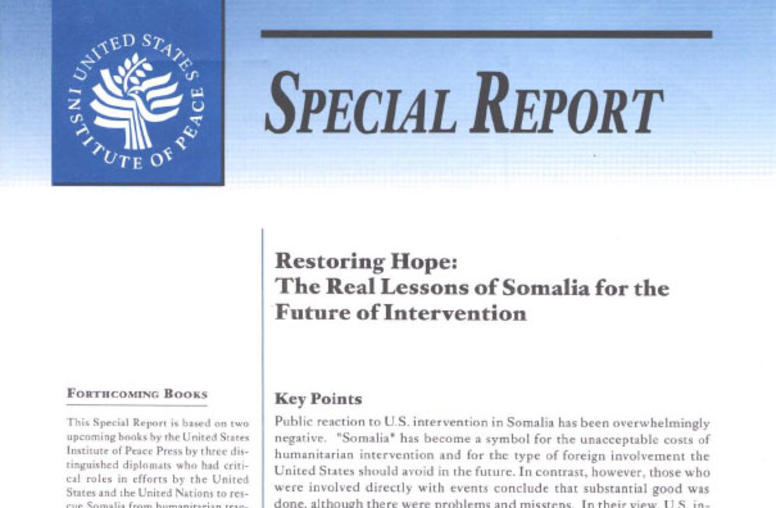
Restoring Hope: The Real Lessons of Somalia for the Future of Intervention
This Special Report distills the work of Sahnoun, Oakley, and Hirsch into an overview of the lessons of Somalia for the future of humanitarian and political intervention.
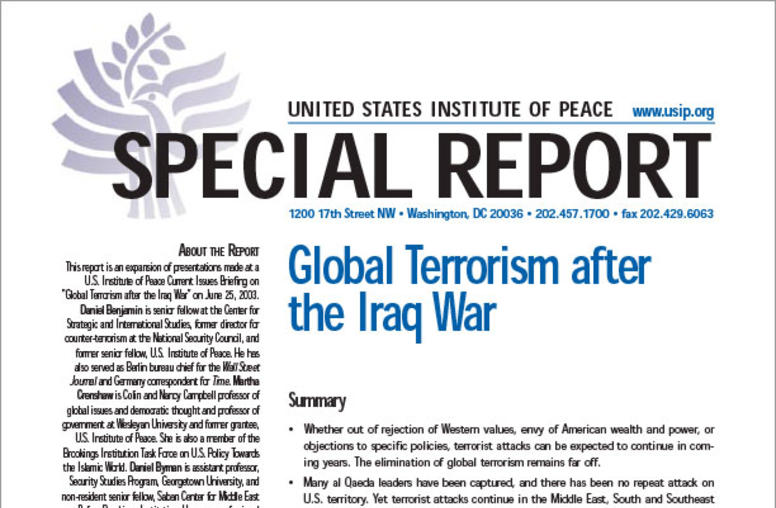
Global Terrorism after the Iraq War
This report is an expansion of presentations made at a U.S. Institute of Peace Current Issues Briefing on "Global Terrorism after the Iraq War" on June 25, 2003
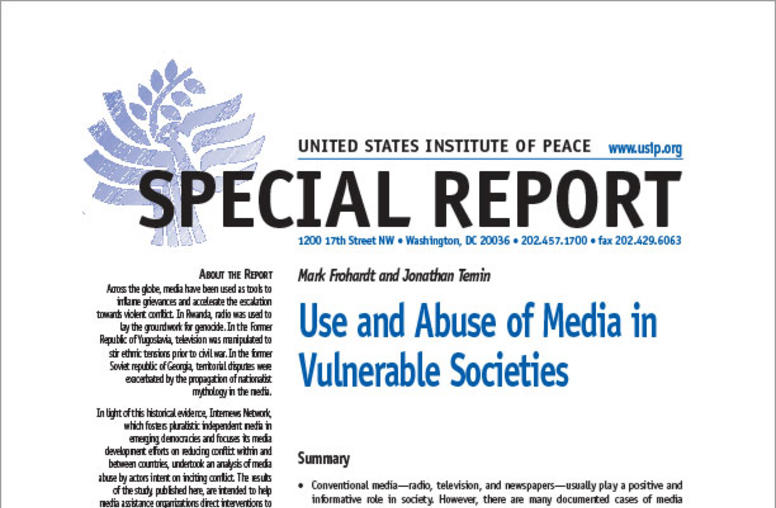
Use and Abuse of Media in Vulnerable Societies
Across the globe, media have been used as tools to inflame grievances and accelerate the escalation towards violent conflict. In Rwanda, radio was used to lay the groundwork for genocide.
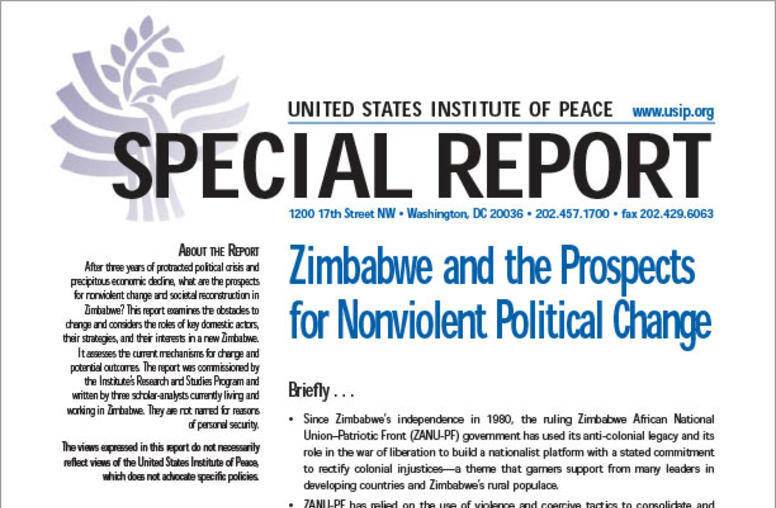
Zimbabwe and the Prospects for Nonviolent Political Change
This report examines the obstacles to change and considers the roles of key domestic actors, their strategies, and their interests in a new Zimbabwe. It assesses the current mechanisms for change and potential outcomes.
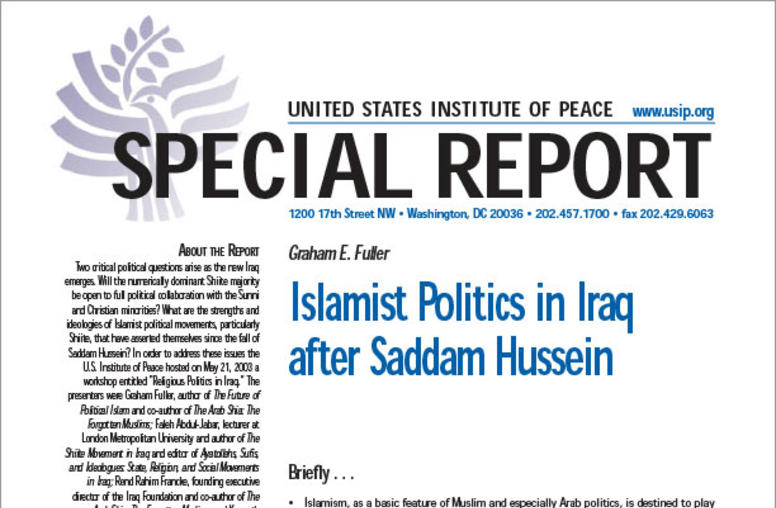
Islamist Politics in Iraq after Saddam Hussein
Two critical political questions arise as the new Iraq emerges. Will the numerically dominant Shiite majority be open to full political collaboration with the Sunni and Christian minorities? What are the strengths and ideologies of Islamist political movements, particularly Shiite, that have asserted themselves since the fall of Saddam Hussein?
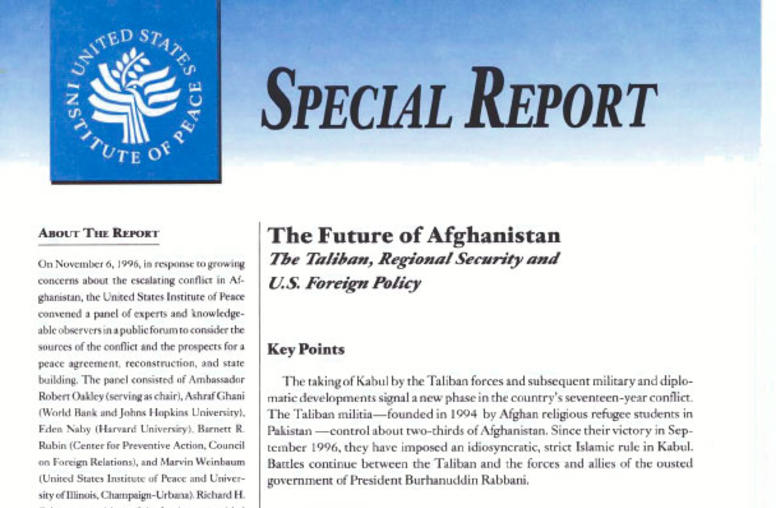
The Future of Afghanistan: The Taliban, Regional Security and U.S. Foreign Policy
In response to growing concerns about the escalating conflict in Afghanistan, the United States Institute of Peace convened a panel of experts and knowledgeable observers in a public forum to consider the sources of the conflict and the prospects for a peace agreement, reconstruction, and state building.
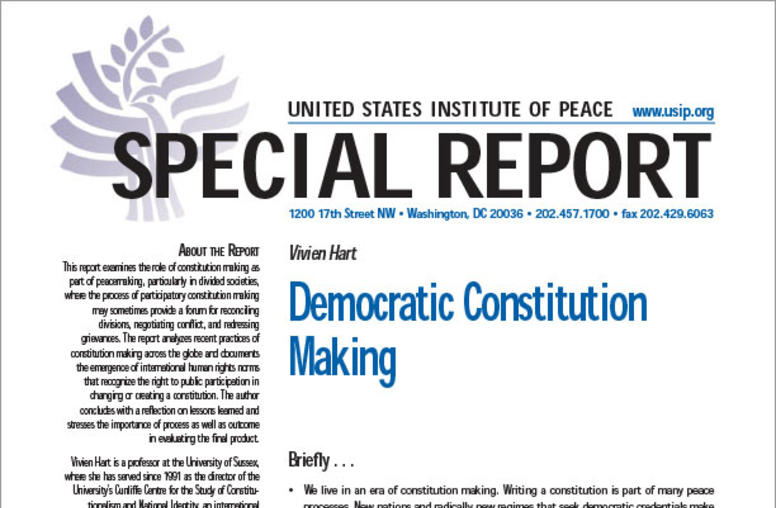
Democratic Constitution Making
Summary We live in an era of constitution making. Writing a constitution is part of many peace processes. New nations and radically new regimes that seek democratic credentials make writing a constitution a priority. In a changing world, constitutional practice is also changing. Twenty-first century constitutionalism is redefining the long tradition of expert constitution making and bringing it into the sphere of democratic participation.
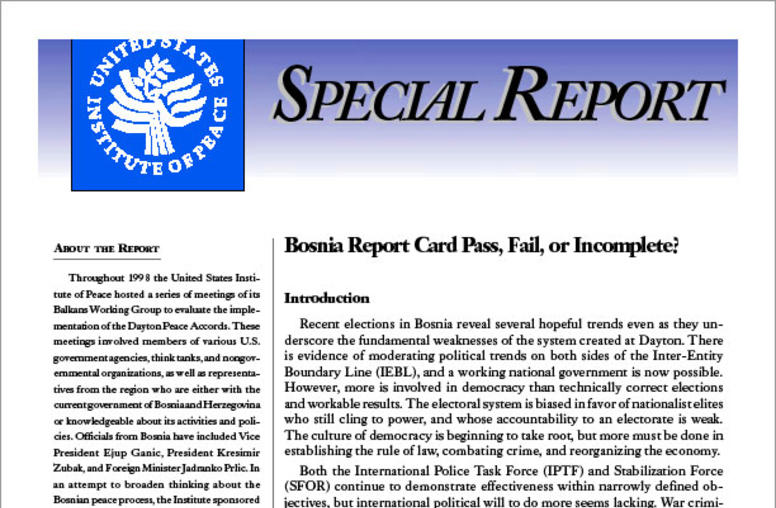
Bosnia Report Card: Pass, Fail, or Incomplete?
Throughout 1998 the United States Institute of Peace hosted a series of meetings of its Balkans Working Group to evaluate the implementation of the Dayton Peace Accords.
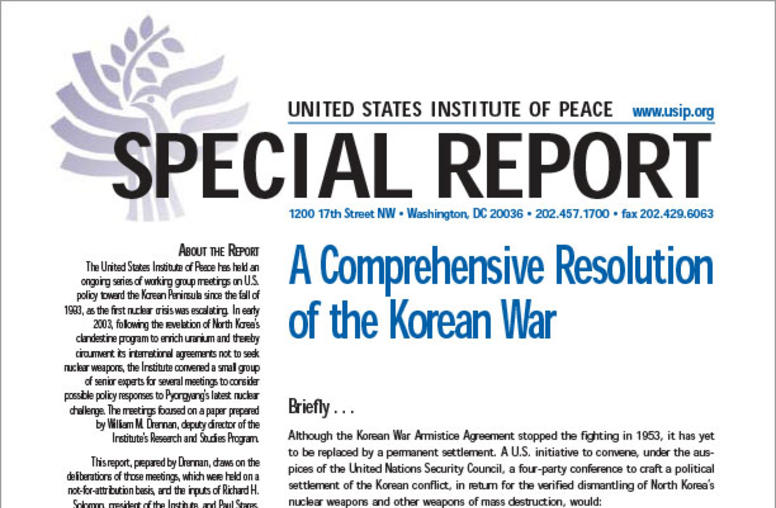
A Comprehensive Resolution of the Korean War
Summary Although the Korean War Armistice Agreement stopped the fighting in 1953, it has yet to be replaced by a permanent settlement. A U.S. initiative to convene, under the auspices of the United Nations Security Council, a four-party conference to craft a political settlement of the Korean conflict, in return for the verified dismantling of North Korea's nuclear weapons and other weapons of mass destruction, would: Meet the U.S. requirement for a multilateral solution to the nuc...
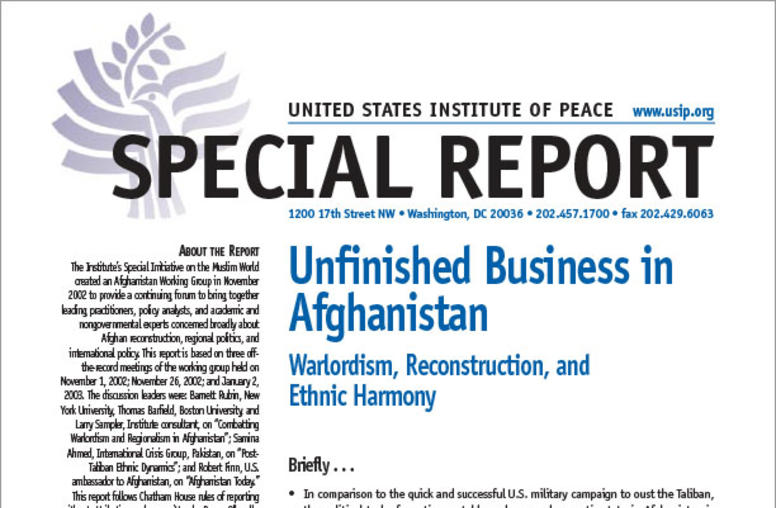
Unfinished Business in Afghanistan: Warlordism, Reconstruction, and Ethnic Harmony
Summary In comparison to the quick and successful U.S. military campaign to oust the Taliban, the political task of creating a stable and secure democratic state in Afghanistan is proving much more difficult. There are some hopeful signs since January 2003 with sections of President Hamid Karzai's government apparatus becoming more functional. But the central government continues to be severely hampered in the absence of adequate funds, security structures, and infrastructure.